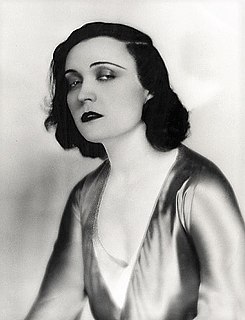A Quote by Pola Negri
Alas, in 1929 came the Stock Market crash and everything changed and became worrisome. People started practicing conservatism because of financial losses, myself included.
Related Quotes
The underlying strategy of the Fed is to tell people, "Do you want your money to lose value in the bank, or do you want to put it in the stock market?" They're trying to push money into the stock market, into hedge funds, to temporarily bid up prices. Then, all of a sudden, the Fed can raise interest rates, let the stock market prices collapse and the people will lose even more in the stock market than they would have by the negative interest rates in the bank. So it's a pro-Wall Street financial engineering gimmick.
If the stock market does go through a crisis of confidence, which I think clearly will happen one of these days, no one can predict just like you couldn't the dot com crash or the Lehman crash, but when it goes down it will go down by thousands of points because everyone will panic. No one owns this market today because they believe there's a huge sunny future for the United States economy. They're buying because they think the Fed can keep the thing pumped up, the bubble expanding.
Smoot and Hawley ginned up The Tariff Act of 1930 to get America back to work after the Stock Market Crash of '29. Instead, it destroyed trade so effectively that by 1932, American exports to Europe were just a third of what they had been in 1929. World trade fell two-thirds as other nations retaliated. Jobs evaporated.
The stock market crashed in October 1929. But that was not the cause of what caused the Great Depression. It was, in my opinion, a very minor element of it. What happened was that from 1929 to 1933 you had a major contraction which, in my opinion, was caused primarily by the failure of the Federal Reserve System, to follow the course of action for which it was set up. It was set up to prevent exactly what happened from 1929 to 1933. But instead of preventing it, they facilitated it.



































